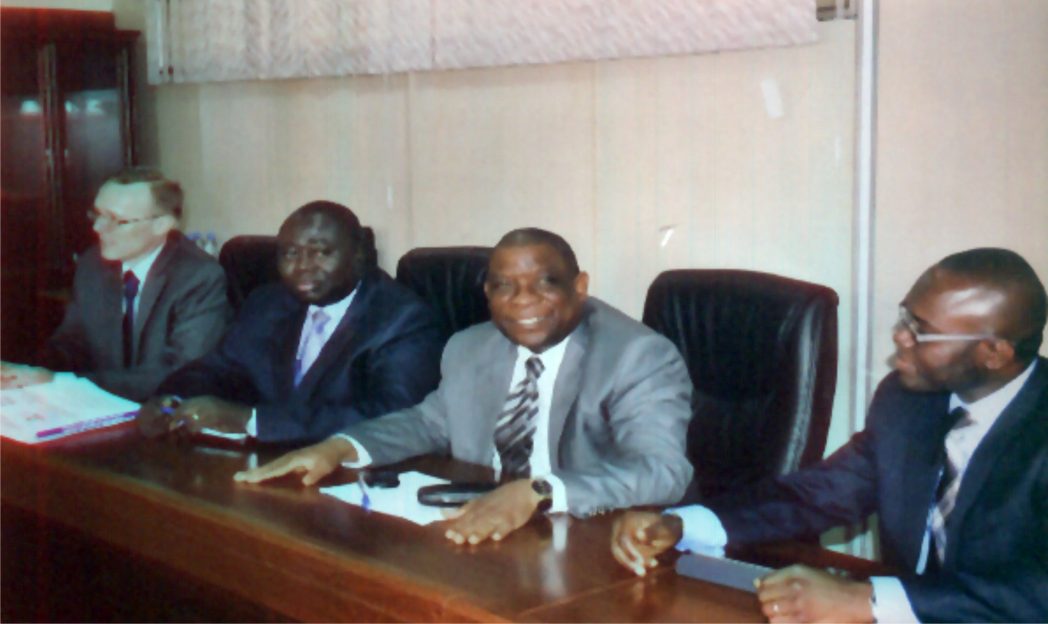Business
‘Technical, Commercial Losses, Bane of Power Sector’
Minister of Power, Prof Chinedu Nebo has said that technical and commercial energy losses remained a serious challenge to the socio-economic growth of power sector development in Nigeria.
Nebo made the statement during the official opening of Power African Workshop in Lagos with the theme “Metering, Billing and Loss Reduction: A Regional Workshop for Distribution Utility”.
Nebo, who was represented by Mr Godknows Igali, Permanent Secretary, Ministry of Power, said that the workshop was centered on the ways the private power sector owned Transmission Company of Nigeria (TCN) could reduce technical losses.
The minister said that the objective of the workshop was to introduce the participants to best practices in billing, theft reduction and marketing of their commodities to the end users.
According to him, Nigeria Power Sector Reform is the biggest most transparent power sector in the world.
“This forum is critical to the sector at this time.
“The technical and commercial losses affect both consumers and companies in areas of effective distribution companies.
“As at today about N390 billion has been paid as severance package benefits to defunct power sector workers.
“About 45,000 workers had been settled while 2,000 workers which identification of employment was not known were still pending,” he said.
The minister said that vandalism remained a big challenge, adding that power generation had reached about 5,000 mega watts but was truncated by vandals.
Nebo said that President Goodluck Jonathan had approved funds for the procurement of one million electricity meters, which would be domiciled in Nigeria.
He said local meter manufacturers would be patronised, adding that government would not import pre-paid meters to serve electricity customers.
He said the private sector owners of the electricity distribution companies inherited a lot of customers who had no meters.
“The private sector inherited a customer base in which 50 per cent does not have meters. Nigeria has the highest per capital electricity theft in the world.
Director General, National Power Training Institute of Nigeria (NAPTIN),
Mr Reuben Okeke, said that the greatest challenges that the present utilities faced were huge aggregate technical, commercial and collection losses.
Okeke said that the new distribution utility owners had decried that the losses they met in their distribution network were much more than they were informed.
Business
Agency Gives Insight Into Its Inspection, Monitoring Operations

Business
BVN Enrolments Rise 6% To 67.8m In 2025 — NIBSS

The Nigeria Inter-Bank Settlement System (NIBSS) has said that Bank Verification Number (BVN) enrolments rose by 6.8 per cent year-on-year to 67.8 million as at December 2025, up from 63.5 million recorded in the corresponding period of 2024.
In a statement published on its website, NIBSS attributed the growth to stronger policy enforcement by the Central Bank of Nigeria (CBN) and the expansion of diaspora enrolment initiatives.
NIBSS noted that the expansion reinforces the BVN system’s central role in Nigeria’s financial inclusion drive and digital identity framework.
Another major driver, the statement said, was the rollout of the Non-Resident Bank Verification Number (NRBVN) initiative, which allows Nigerians in the diaspora to obtain a BVN remotely without physical presence in the country.
A five-year analysis by NIBSS showed consistent growth in BVN enrolments, rising from 51.9 million in 2021 to 56.0 million in 2022, 60.1 million in 2023, 63.5 million in 2024 and 67.8 million by December 2025. The steady increase reflects stronger compliance with biometric identity requirements and improved coverage of the national banking identity system.
However, NIBSS noted that BVN enrolments still lag the total number of active bank accounts, which exceeded 320 million as of March 2025.
The gap, it explained, is largely due to multiple bank accounts linked to single BVNs, as well as customers yet to complete enrolment, despite the progress recorded.
Business
AFAN Unveils Plans To Boost Food Production In 2026
-

 Sports3 days ago
Sports3 days agoTinubu Lauds Super Eagles’ after AFCON bronze triumph
-

 Sports3 days ago
Sports3 days agoAFCON: Lookman gives Nigeria third place
-

 Sports3 days ago
Sports3 days agoFulham Manager Eager To Receive Iwobi, Others
-

 Sports3 days ago
Sports3 days ago“Mikel’s Influence Prevent Some Players Invitation To S’Eagles Camp”
-

 Sports3 days ago
Sports3 days agoMan of The Match award Excites Nwabali
-

 Sports3 days ago
Sports3 days agoRemo, Ikorodu set for NPFL hearing, Today
-

 Sports3 days ago
Sports3 days agoPolice Games: LOC inspects facilities in Asaba
-

 Niger Delta3 days ago
Niger Delta3 days agoINC Polls: Ogoriba Pledges To Continuously Stand For N’Delta Rights … Picks Presidential Form


